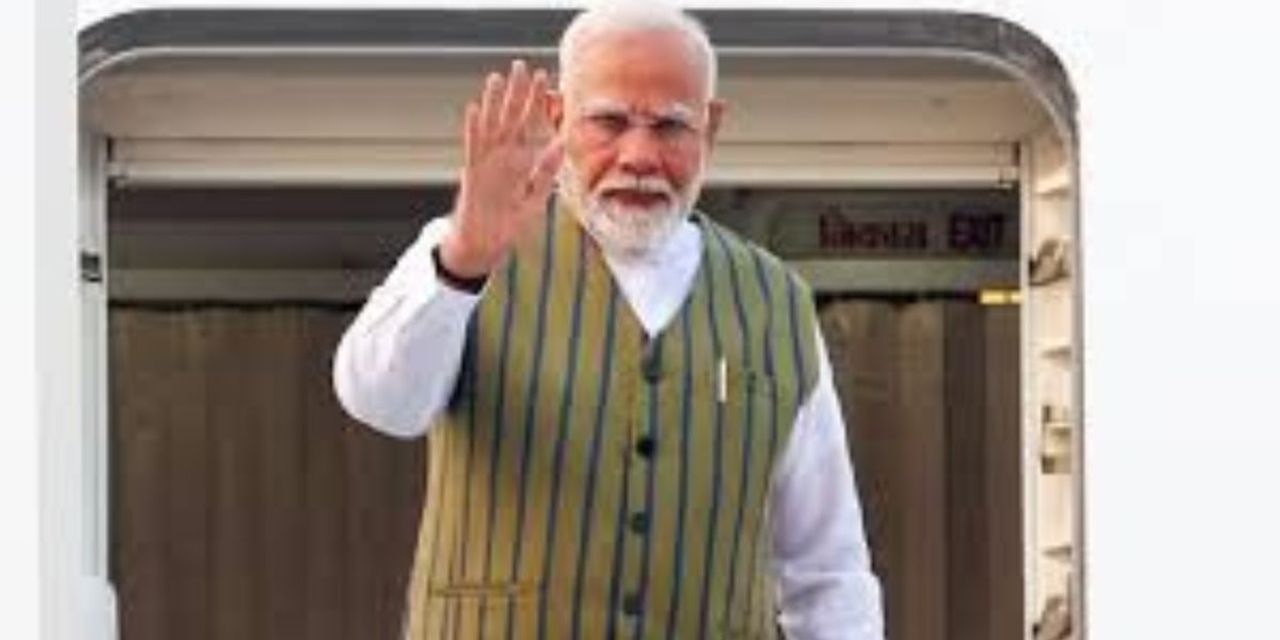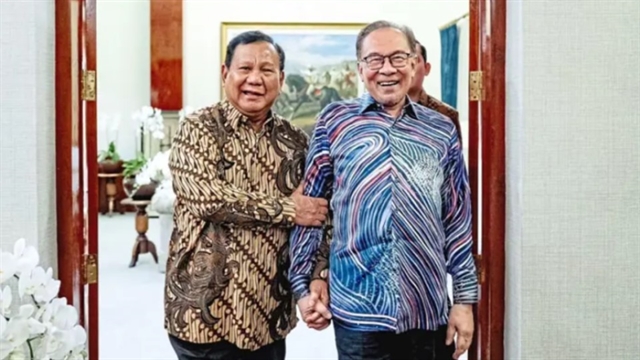"All warfare is based on deception. Hence, when we are able to attack, we must seem unable; when using our forces, we must appear inactive; when we...
Vous n'êtes pas connecté
- English
- Français
- عربي
- Español
- Deutsch
- Português
- русский язык
- Català
- Italiano
- Nederlands, Vlaams
- Norsk
- فارسی
- বাংলা
- اردو
- Azərbaycan dili
- Bahasa Indonesia
- Հայերեն
- Ελληνικά
- Bosanski jezik
- українська мова
- Íslenska
- Türkmen, Түркмен
- Türkçe
- Shqip
- Eesti keel
- magyar
- Қазақ тілі
- Kalaallisut ; kalaallit oqaasii
- Lietuvių kalba
- Latviešu valoda
- македонски јазик
- Монгол
- Bahasa Melayu ; بهاس ملايو
- ဗမာစာ
- Slovenščina
- тоҷикӣ ; toğikī ; تاجیکی
- ไทย
- O'zbek ; Ўзбек ; أۇزبېك
- Tiếng Việt
- ភាសាខ្មែរ
- རྫོང་ཁ
- Soomaaliga ; af Soomaali
Rubriques :
 Maroc - EURASIAREVIEW.COM - A la une - 24/Oct 16:48
Maroc - EURASIAREVIEW.COM - A la une - 24/Oct 16:48
Malaysia’s Confusing Foreign Policy – Analysis
Anwar’s non-appearance at the Kazan BRICS meeting raises some interesting questions When Malaysian prime minister Anwar Ibrahim announced and personally thanked Russian President Vladimir Putin for his invitation to personally join the BRICS Summit in Kazan, Russia, this was a clear message that Malaysia was pivoting towards the economic and trading based block. Traditionally, Malaysia has espoused itself as a non-aligned nation with sympathies towards Muslim nations, it considered as brothers. Under prime minister Mahathir Mohamed, Malaysia took in humanitarian refugees from Bosnia during the Bosnian war between 1992 and 1995. Malaysia’s stance was somewhat critical of US policy. However, Malaysia voted in the United Nations Security Council (Malaysia was a rotational member at the time) for military action against Iraq in the first Gulf War during 1990-1991. While prime minister, Najib Razak tilted Malaysia towards China, attracting investment in a number of Belt and Road (BRI) projects. One of the Barisan Nasional partners, the Malaysian Chinese Association (MCA) became very close to the CCP United Front at the time. When Anwar Ibrahim became prime minister in November 2022, he very quickly announced that he saw Malaysian coexisting and cooperating with all nations in a multi-polar world. Anuar’s first trip was symbolically made to Saudi Arabia, and he later quickly travelled to Turkey during the earthquake in February 2023. Later in March 2023, Anwar made what was portrayed in the Malaysian government-controlled media as a highly successful trip. Interestingly enough, Anwar never visited the White House during his tenure as prime minister. However, while Malaysia’s non-alignment in a multi-polar world was publicly espoused, Malaysia had been cooperating with the US in surveillance flights over the South China Sea. The largely unreported Ops Hadir, originated during the Ismail Sabri Yaakob administration, and continued under Anwar. Ops Hadir is conducted between the Research Division of the Prime Minister’s Department, also known as the Malaysian External Intelligence Organization (MEIO) and the US Central Intelligence Agency (CIA) in areas adjacent to Sarawak has been very beneficial to Malaysia as Chinese Coast guard operations are frequently occurring in the area. This indicates Malaysia’s continued cooperation with US intelligence. The Kazan BRICS Summit The September 5 announcement by Anwar Malaysia would seek membership of BRICS came as a welcome surprise to many in Malaysia, who see the distinct economic and trade benefits. Although it was well publicised that Malaysia was seeking BRICS membership, where Bernama the official Malaysian news agency stated Malaysia was prioritised for BRICS membership, the Russian media contradicted this. RT on October 3, clearly indicated that Malaysia was not seeking membership of BRICS, this time round at least. Observers really don’t know whether Anwar’s absence is because of this, or whether he had not been formally invited as a national leader to the summit. Malaysia’s presence is very low key. Economy minister Rafizi Ramli is attending to summit to deliver a speech at a coordinated conference (BRICS Outreach), running parallel to the summit. While Anwar is not attending the BRICS Summit, Saudi Foreign Minister Prince Faisel bin Farhan Al Saud is leading the Saudi delegation, Pham Minh Chinh Prime Minister of Vietnam, Recap Tayyip Erdogan President of Turkey, President Masoud Pezeshkian of Iran, Abiy Ahmad prime minister of Ethiopia, and a large delegation from Palestine led by President Mahmoud Abbas, the executive committee of the PLO and five ministers are attending the summit. This doesn’t include the leaders of 24 other nations at the summit. Some suspect Anwar’s recent meeting with US Secretary of State Antony Blinken on October 10, on the sidelines of the ASEAN meeting in Vientiane has something to do with his decision not to attend the BRICS Summit. This can only be speculation, but those advocating this point, look to Anwar’s very strong relationships with leaders within the Washington establishment, who supported him strongly during his days in opposition. Malaysia’s foreign policy appears to be driven by relationship under Anwar Since Anwar has become prime minister, there have been two foreign ministers in the relatively low ranked cabinet portfolio. Dr Zambry Abdul Kadir was replaced by Anwar with UMNO vice president Mohamad Hasan, after heavily public criticisms of Anwar’s visit to Saudi Arabia where he failed to secure a meeting with Crown Prince Mohammed bin Saman Al Saud, and China where there were criticisms over the authenticity of the reported RM 170 billion in direct foreign investment Anwar secured during his visit in April 2023. One can get a glimpse of Anwar’s foreign policy judgements with the differences in his reactions towards the assassination of Ismail Haniyeh, a pronounced good personal friend of Anwar, and the assassination of Hamas leader Yahya Sinwar, just recently, which was much more low key. That clearly indicates that Anwar’s personal relationships play some role in the foreign policy decisions he makes. The implications of this can be clearly seen in the approach many nations are making towards the issue of Palestine. Russian President Putin warmly welcomed the President of the Palestinian National Authority Mahmoud Abbas as the legitimate leader of Palestine. Even though the Palestinian National Authority has an official embassy in Kuala Lumpur, all Anwar’s government efforts have been focused upon Hamas. While the BRICS summit is in play, there are calls for Anwar while Malaysia is chair of ASEAN in 2025, to go on and lead the global. BRICS is clearly taking up this role now. There can be a lot of truth that many of Anwar’s announcements on foreign policy, particularly during his numerous overseas trips are aimed at domestic consumption than actual long-term policy. Under Anwar, as it has been during previous administrations, foreign policy will continue to be more ad hoc than ideologically based. Only this time, observers will be able to see where Malaysian foreign policy stands through Anwar’s personal relationships.
Articles similaires
PM Modi Goes On A 2-Day Trip To Russia; Meet Other World Leaders!
PM Modi Goes On A 2-Day Trip To Russia Indian Prime Minister Narendra Modi started a two-day tour of Russia on Tuesday to attend a BRICS Summit in the...
Malaysia: Govt Denies Allegations Najib Would Gain From House Arrest Bill
By Iman Muttaqin Yusof Malaysia’s government denied Friday it was trying to ensure an early release for imprisoned ex-Prime Minister Najib Razak...
KAZAN OUTCOMES: Putin hails BRICS summit as ‘great success’, invites several new countries to become ‘partners’
President Cyril Ramaphosa attended the BRICS Summit in Kazan, Russia, this week which concluded with more country partnerships to be signed, and also...
Modi, Xi to Hold Bilateral Meeting at BRICS Summit Sidelines on 23 October
Indian Prime Minister Modi is scheduled to hold talks with Chinese President Xi Jinping on Wednesday during the BRICS Summit in Kazan, as confirmed by...
Indonesia seeks membership in BRICS, Ministry says
The Indonesian Ministry of Foreign Affairs announced on Thursday the country’s intent to join the BRICS group. After attending the summit in Russia...
Indonesia’s Interest In Joining BRICS: Pursuing Economic Security And Global Influence – Analysis
BRICS, a coalition comprising five major emerging economies—Brazil, Russia, China, India, and South Africa—collectively accounts for...
Malaysian PM Anwar looks forward to strengthening ties with Indonesia
Malaysia will continue to be a strategic partner of Indonesia as it strengthens the bond of friendship with the republic, says the Prime Minister.
Anwar affirms Malaysia's commitment to strategic partnership with Indonesia
KUALA LUMPUR: Malaysia will continue to be a strategic partner to Indonesia, while strengthening the bonds of friendship between the two brotherly...
India’s Strategic Gains At BRICS 2024: Navigating Multipolarity And Global Leadership – Analysis
The BRICS Summit in Kazan, Russia, held in 2024, marked a significant milestone in the evolution of the group, with India emerging as a pivotal...
Les derniers communiqués
-
Adobe Brings Conversational AI to Trillions of PDFs with the New AI Assistant in Reader and Acrobat
Adobe - 21/02/2024
-
Laura Frigenti takes the Helm as Chief Executive Officer of the Global Partnership for Education
Global Partnership for Education - 05/12/2022

